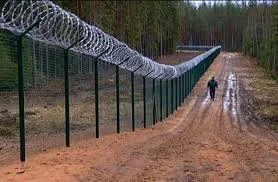How do we shift our understanding of mission—and our association of mission with Western Christianity—to appreciate that God has called all followers of Christ to God’s mission and they can serve wherever in the world God wills them to minister.
Read MoreWhen we talk about the role of Europe in the world in the past and today, we are tempted to see Europe as a whole, as a single centre of power and influence amidst the other world ‘powers that be’. This view however is quite mistaken.
Read MoreFaced with our overdependency on energy, we can now see more than ever the need to bring lifestyle and our economies in line with the ecological imperative of sustainability. What could our response be as Christians?
Read MoreIn 1959, during the Cold War, US President John F. Kennedy said: “When written in Chinese, the word ‘crisis’ is composed of two characters - one represents danger and the other represents opportunity.”
Read MoreA Christian response to the ‘cost of living crisis’ we are in should be practical, prophetic and political. It is relatively easy to achieve one of the three, but a response that speaks to the true influence of lives transformed by Jesus should touch all three.
Read MoreThe energy crisis does not appear to be a central topic for evangelical churches and there are only a few articles written in the past years on related subjects such as global warming or creation care.
Read MoreA survey of the Evangelical Alliance websites of countries which are members of the European Evangelical Alliance, looking for mention on their websites of articles or resources relating to the key search phrases of ‘climate change’, ‘climate crisis’ and ‘creation care’.
Read MoreIn this concise and very readable publication, Bruce Nicholls, one of the founders of the Theological Commission of the World Evangelical Alliance, gives a rapid overview of the issue of climate change and then concentrates on the Christian response.
Read MoreTracing the development of the Evangelical Commitment to a Simple Lifestyle from the Lausanne Congress of World Evangelisation in 1974
Read MoreThis article seeks to provide a statistical description of the dimensions of the Ukraine War and migrant crisis, and to briefly discuss its impact on mission in Europe.
Read MoreOvernight the gateway countries bordering Ukraine were flooded by people fleeing the war. The situation on borders and in key transport cities was dramatic and chaotic, but both the governments and the civil society, including churches, responded quickly and worked out emergency plans to help those fleeing the Russian invasion.
Read MoreWhile the conflict has resulted in 6.4 million Ukrainian refugees scattered across Europe, even more Ukrainians are displaced inside their country. The Russia-Ukraine war carries significant missiological implications for all Christian stakeholders involved but particularly for the body of believers remaining in Ukraine.
Read MoreWhile many people arriving across Europe from Ukraine since February plan to return, the prolonged duration of the war means that this is not possible yet. Short term crisis solutions will not be enough, and many churches and networks are involved in creating a longer term response.
Read MoreOn 19th and 20th May 2022, 72 Christian leaders from 22 European countries were called together for 24 hours in Krakov, Poland by a platform called Christian Ukraine Collaboration that had emerged during the early weeks of the war as leaders of Evangelical mission agencies sought collaborative responses to the situation.
Read MoreSince the Russian invasion armies crossed the Ukrainian border, over three and a half million Ukrainian refugees have crossed several European borders, seeking refuge from the destruction of their country. Across Europe people manifest their solidarity with the plight of the people from that beleaguered country whose name, significantly, means ‘Border land’.
Read MoreThis article explores the Gospels and Acts to make an argument that the mission of Jesus to make disciples of all nations in the world, is a call for his followers to cross all kinds of borders to bear witness to his name. Focusing on geographical borders, I argue that diaspora people – those who had crossed physical borders – played a significant role in the spread of Christianity right from its inception.
Read MoreI grew up in Estonia, behind the Iron Curtain, the heavily militarised border between Western capitalist countries and the Communist Bloc led by the Soviet Union. For me a border to the world outside was set in stone or in iron. Crossing was impossible.
Read MoreThe start of the book of Genesis, and the story of the church from Acts onwards, are about humanity as a whole. In between, through the Old Testament and the Gospels, the focus is tightly on the nation of Israel. It is interesting that at the two transition points of Genesis 11 and Acts 2, we have stories about language: the tower of Babel and the day of Pentecost.
Read MoreI am a jobbing sociologist, and the word Shibboleth has found a home in my discipline. It is used to describe the cultural markers which groups use to define who they are – separating “Us” from “Them”. It’s part and parcel of Othering; fostering group solidarity by exclusionary practices. There are many effective shibboleths. The word most often describes language codes but there are broader applications and a plethora of cultural practices which politicise difference.
Read More



















